I have been trying to query each city's popular genre. I am only trying to get the rows that I have highlighted. I tried using MAX() on a group by but gave me a syntax error.
My CTE query is as follows, its based on the dbeaver sample dataset:
with q_table
as
( select City, Genre, count(*) as counts
from
(select c.City, g.Name as Genre
from bus5dwr.dbeaver_sample.Customer c
inner join bus5dwr.dbeaver_sample.Invoice i
on i.CustomerId = c.CustomerId
inner join bus5dwr.dbeaver_sample.InvoiceLine il
on il.InvoiceId = i.InvoiceId
inner join bus5dwr.dbeaver_sample.track t
on t.TrackId = il.TrackId
inner join bus5dwr.dbeaver_sample.Genre g
on g.GenreId = t.GenreId
where Country = 'USA'
) as t2
group by City, Genre)
I tried the following query.
